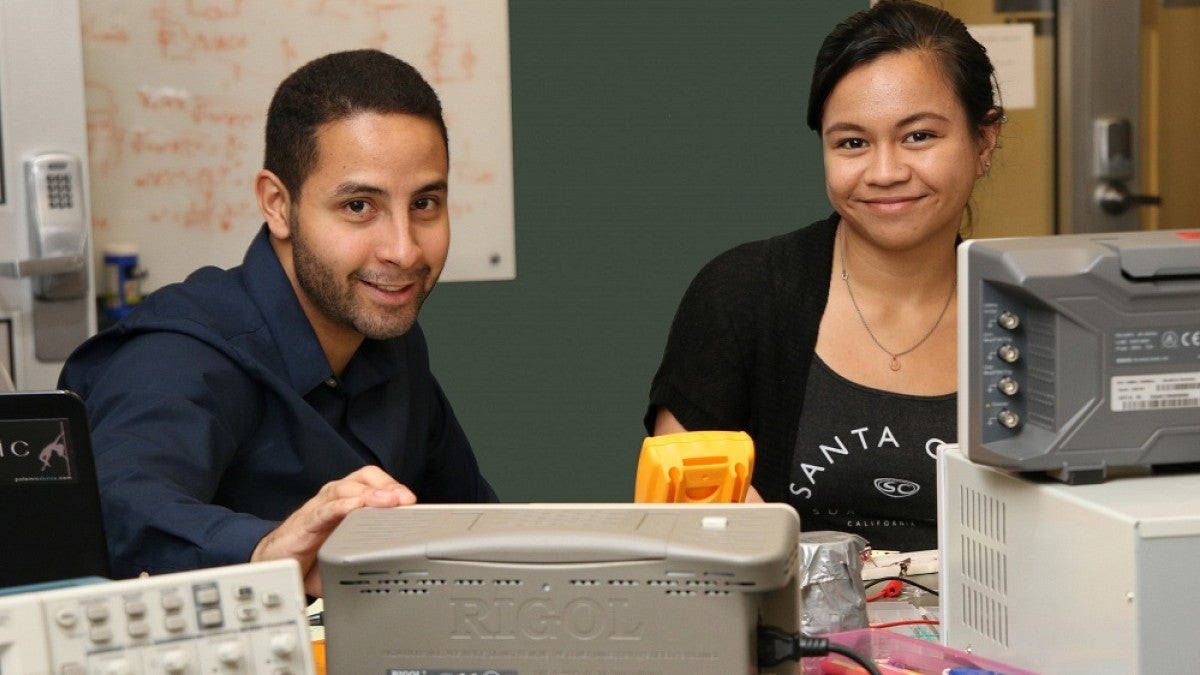A recently announced gift from Thermo Fisher Scientific will help the UO attract a more diverse pool of graduate students seeking high-tech careers.
The $100,000 gift will benefit an inclusion and diversity initiative launched last year in the UO's Master’s Industrial Internship Program, a unique educational program housed within the Phil and Penny Knight Campus for Accelerating Scientific Impact.
“This gift will support our efforts to ensure that we create a learning and research environment that seeks diverse perspectives while fostering equity and inclusion,” said UO President Michael Schill. “I look forward to further strengthening our partnership with Thermo Fisher and other companies to create professional opportunities for our students who will be the scientific workforce of tomorrow.”
The gift is being matched by the Master’s Industrial Internship Program and will fund a variety of activities to increase inclusion and diversity within the sciences. Activities include an annual Inclusion Symposium, weekly workshops for enrolled students and a scholarship fund for both students from under-represented groups and those who have shown a commitment to inclusion and diversity.
Stacey York, director of the master’s program, said the gift is good for students and good for science and innovation.
“Research shows that complex scientific problems are best solved by diverse groups of people and diversity comes in a number of forms,” York said. “This gift will allow us to accelerate the work we are already doing to increase inclusion and diversity.”
The master’s program trains students for careers in industry and government labs and has three areas of focus: polymer science, optical materials and devices, and photovoltaic and semiconductor device processing. It is part of The Knight Campus Internship Program, which includes the equally successful Bioinformatics and Genomics Master’s Program.
The Knight Campus was launched in October 2016 with a $500 million gift from Nike founder Phil Knight and his wife, Penny. Groundbreaking took place on March 2 for the $1 billion project designed to fast-track scientific discoveries into treatments, therapies and technologies that can radically improve human health.
Students in the industrial master’s program start with an intensive summer term that includes lab and course work combined with professional skills development. Upon completion, students interview for nine-month paid internships with company partners.
Close to 98 percent of students receive internships, and the average annualized internship salary last year was $54,800. At the end of the program, 90 percent of graduates are employed within three months, with 70 percent of those being employed by their host companies.
Such high placement rates have made the program the envy of many, but according to York, some students have difficulty covering tuition costs before the paid internship begins. The inclusion and diversity initiative seeks to remove this barrier for underrepresented groups and groups committed to creating an inclusive environment, York says.
“By providing scholarships in the summer, we are able to relieve that burden and increase the number of students who might otherwise opt out and go elsewhere,” York said.
The Master’s Industrial Internship Program has long enjoyed a strong partnership with Thermo Fisher, a world leader in serving science. York estimates that more than 40 students have completed internships at the Hillsboro site of Thermo Fisher’s Materials & Structural Analysis business and many have gone on to work for the company.
Alumni and interns from the master’s program also work at other Thermo Fisher sites in Eugene, Bend and Bothell, Wash. Headquartered in Waltham, Massachusetts, Thermo Fisher has approximately 70,000 employees globally.
“We are proud to be aligned with the University of Oregon on this outstanding program, which echoes our workplace culture of diversity and inclusion and reinforces our shared commitment to transform a wide-ranging population of students into the science professionals of tomorrow,” said Mike Shafer, president, Materials and Structural Analysis Division at Thermo Fisher Scientific.
About 50 to 60 students per year enroll in the internship program’s three tracks. All students admitted into the program are able to participate in the inclusion and diversity initiative through weekly inclusion meetings during the summer and by attending the annual Inclusion Symposium. Last year approximately 75 percent of students participated.
Ultimately, York said, the goal is to create a technical talent pipeline that includes students from all walks of life.
“Our five-year plan is to make a self-sustaining pipeline of a more inclusive applicant pool,” York said.


